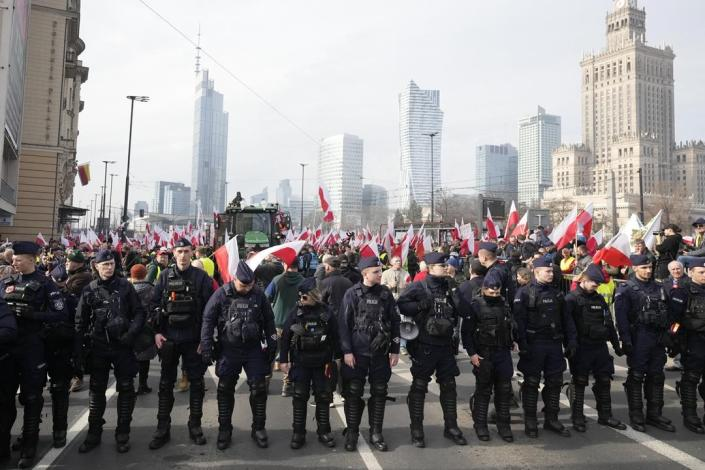In a powerful display of dissent, thousands of farmers took to the streets of Warsaw, Poland, voicing their grievances against the European Union’s agricultural policies and the influx of cheap food imports from Ukraine. Here are the key highlights:
The March: Polish farmers, brandishing national flags and carrying placards with angry slogans, converged in the capital city. Their collective message resonated across the EU, where similar protests have unfolded in recent weeks.
Green Policies and Production: The farmers’ frustration centers around the EU’s green policies, which they believe adversely impact their agricultural production. These policies, aimed at environmental sustainability, have unintended consequences for local farmers.
Ukrainian Imports: The influx of low-cost grain and other food products from Ukraine has further exacerbated their plight. Farmers argue that these imports undercut their livelihoods and threaten the viability of their farms.
Continental Solidarity: This protest is part of a broader movement. Farmers from 12 EU countries, spanning Central Europe, the Baltics, and the Balkans, have united against bureaucracy, unfavorable conditions, and policies affecting their businesses.
As the tractors roll and voices rise, the clash between agricultural interests and policy decisions unfolds on the streets of Warsaw. The stakes are high, and the farmers’ resolve remains unwavering.
.




Comments
Post a Comment